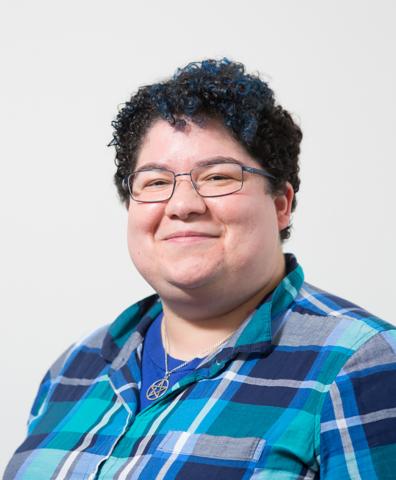
Alumni Profile: Serenity Serseción Serves Diverse Populations with Cultural Humility and Expertise

Serenity Serseción, PhD, (they / them) knew the nature of the work they wanted to do even before attending Palo Alto University (PAU). Completing their studies in the PhD in Clinical Psychology program would only help them with the breadth and depth.
“I wanted to get my doctorate because I wanted to be able to teach, do assessment, and have a private practice,” Dr. Serseción said. “I also wanted to work with trauma and the LGBTQ+ community. I asked how I could do all those things in one place, which is why PAU was a good fit for me. I could actually get all those experiences here.”
Still, Dr. Serseción was meticulous in their search for PhD programs. “I was also looking at the rate of people who graduate, and the rate of people who pass their licensure exams, and PAU had one of the highest rates,” they said.
Dr. Serseción attended PAU from 2009-2014, when both the LGBTQ+ emphasis in the PhD program and the Sexual and Gender Identities Clinic were first starting. Those were two major influences on their decision to enroll. Those programs also provided longtime mentors and friends.
“My two best mentors were Drs. Peter Goldblum and Jorge Wong,” Dr. Serseción said. “I’m still in touch with both and consider them mentors and friends. We’ve crossed paths, and even worked together, in so many roles in the Bay Area over the years.”
Dr. Serseción now has a private practice in which they’re open about being genderqueer, Latinx, and working with the “LGBTQ+ population, polyamory community, Latinx community, DID/ plural community, geek community, video game community, and various other communities."
“Even though things are better now, a lot of the communities I work with are still marginalized,” Dr. Serseción said. “So I try to learn more about different marginalized communities I don’t have much knowledge about and then try to provide the best care that I can.”
“Part of what I tell students is to keep exploring themselves and their intersectional identities, because if they’re not aware of their intersectional identities and the way they’re privileged or marginalized, then they can’t really understand the differences between themselves and their clients,” Dr. Serseción explained. “The risk is that they’re going to assume they’re the same. Even when I have a client with a similar experience to me, I try not to over-assume about how much we have in common.”
The key to Dr. Serseción’s ongoing professional growth seems to be cultural humility, curiosity, networking with colleagues, seeking out professional development opportunities, and actively trying to learn about other people’s experiences.
